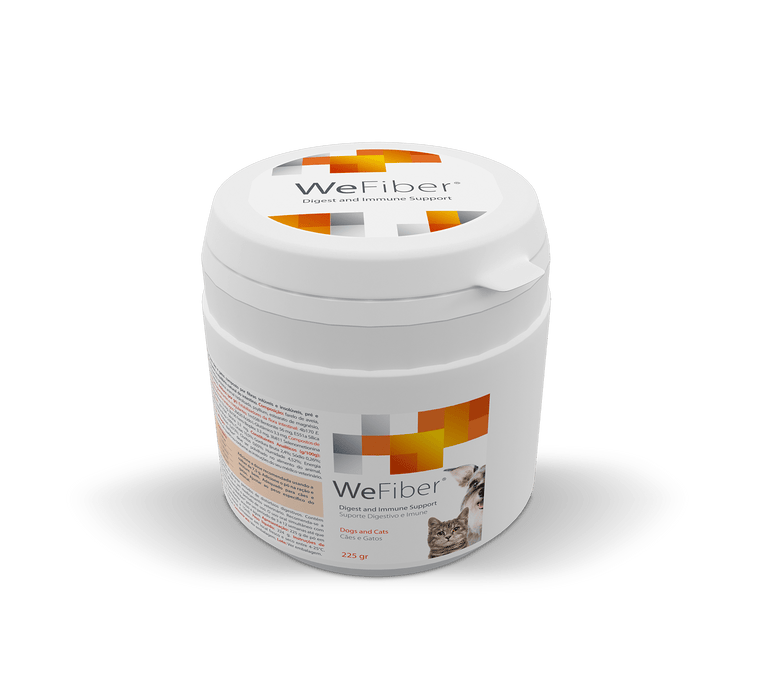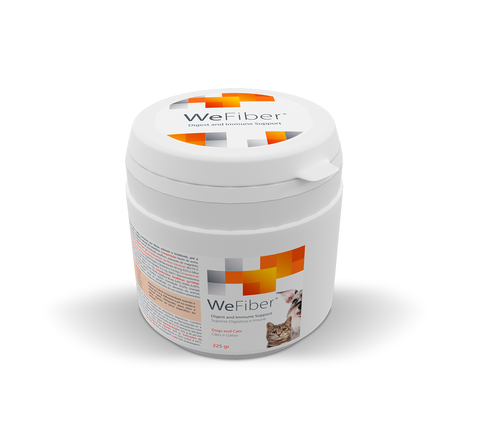
WeFiber 225 grams

Complementary food for dogs and cats composed of soluble and insoluble fibers, pre- and probiotics, to help maintain the natural balance of the intestine.
Specially developed to regulate intestinal peristalsis and prevent impaction of anal glands.
Presentation:
Bottle with 225g of palatable powder and measuring spoon.
- Suitable for use in:
- Regularization of fecal volume
- Preventing Anal Gland Impaction
- Constipation and weight control
- Malabsorption and post-diarrhea rehydration
- Repopulation and maintenance of the microbiota post-diarrhea and/or the use of antibiotics
- Inflammatory bowel diseases and megacolon
- Processes associated with immune deficiencies
- Support for intestinal disorders in senior animals
WeFiber® contains:
Psyllium, oat bran yeast products (mannanoligosaccharides, nucleotides and beta-glucans), glutamine, Enterococci faecium, hydrolyzed animal protein, magnesium stearate, sodium chloride, potassium chloride, bentonite, minerals (zinc, iron) and natural flavors .
How to use, recommendations and doses:
Animal Size Dose
Animals up to 10kg – ½ spoon of WeFiber per day
Animals from 10 to 20kg – 1 spoon of WeFiber per day
Animals from 21 to 30kg – 1½ spoons of WeFiber per day
Animals from 31 to 40kg – 2 spoons of WeFiber per day
Animals over 40kg – 3 spoons of WeFiber per day
Add the recommended dose of powder to the food and mix well. Suitable for dogs and cats. Adjust to the specific weight of the animal.
Administer WeFiber® for a period of 3 to 12 weeks, until digestive disorders disappear. Keep water always available.
Changes in the functioning of the intestine deserve full attention…
Correct intestinal functioning is a very important factor for the animal's health and well-being. Peristaltic movements (peristalsis) are responsible for propelling digestive contents throughout the intestine and, when changes occur, they must be corrected. In dogs and cats, there are frequent changes in peristalsis that can manifest themselves as constipation, or even the opposite, diarrhea or poorly formed feces that, consequently, can lead to impaction of the anal glands.
A multifaceted approach includes providing a combination of soluble and insoluble fiber and other substances that aim to contribute to better intestinal and systemic immunity.
The importance of fiber…
Soluble fibers increase the water content in feces and form a type of gel that helps the passage of fecal material. Fermentable fibers (usually soluble) produce short-chain fatty acids, including butyrate, which can stimulate longitudinal smooth muscle contractions in the colon to promote aboral movement of feces. Colon motility can be improved with insoluble fiber, distending the lumen and stimulating stretch receptors.






